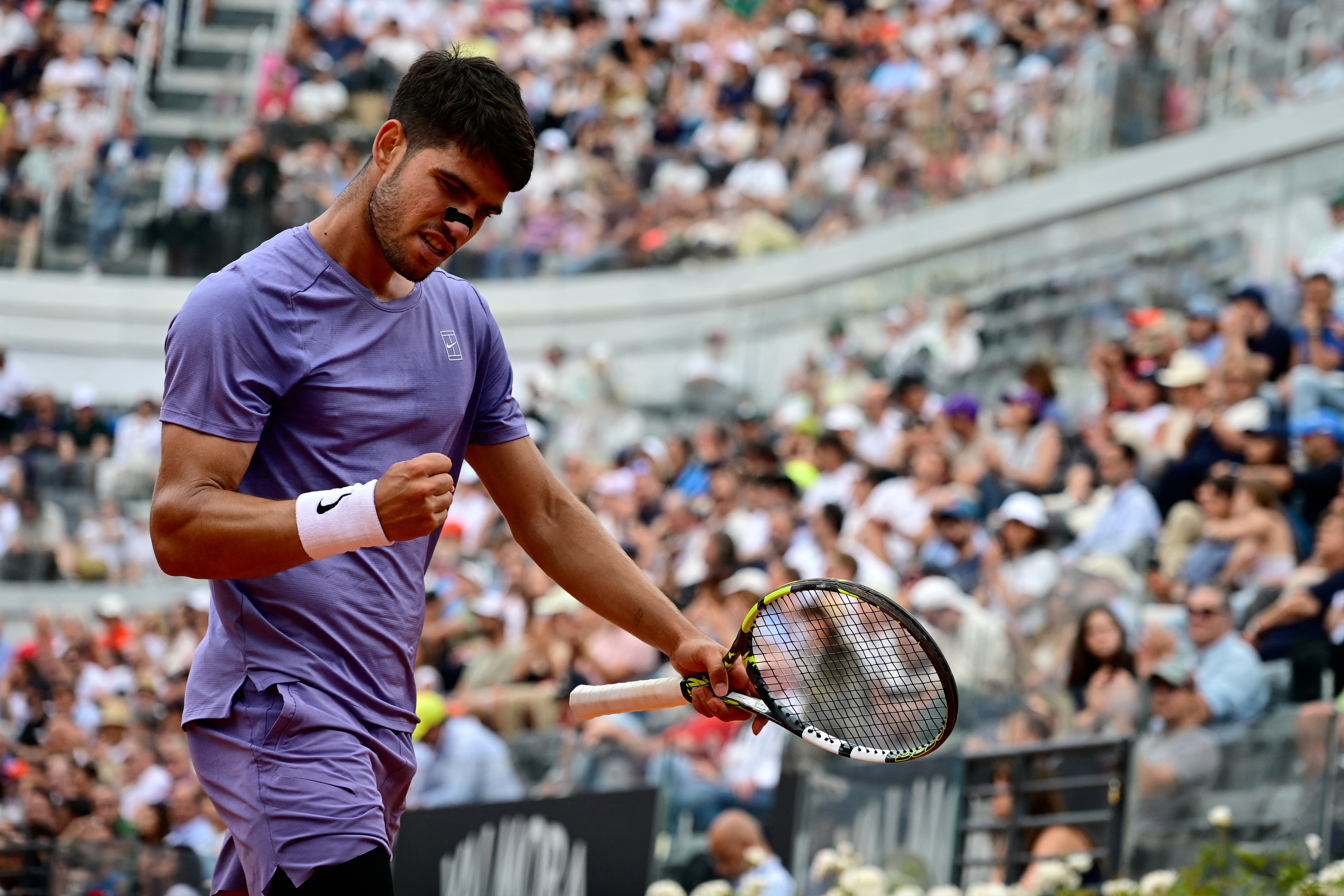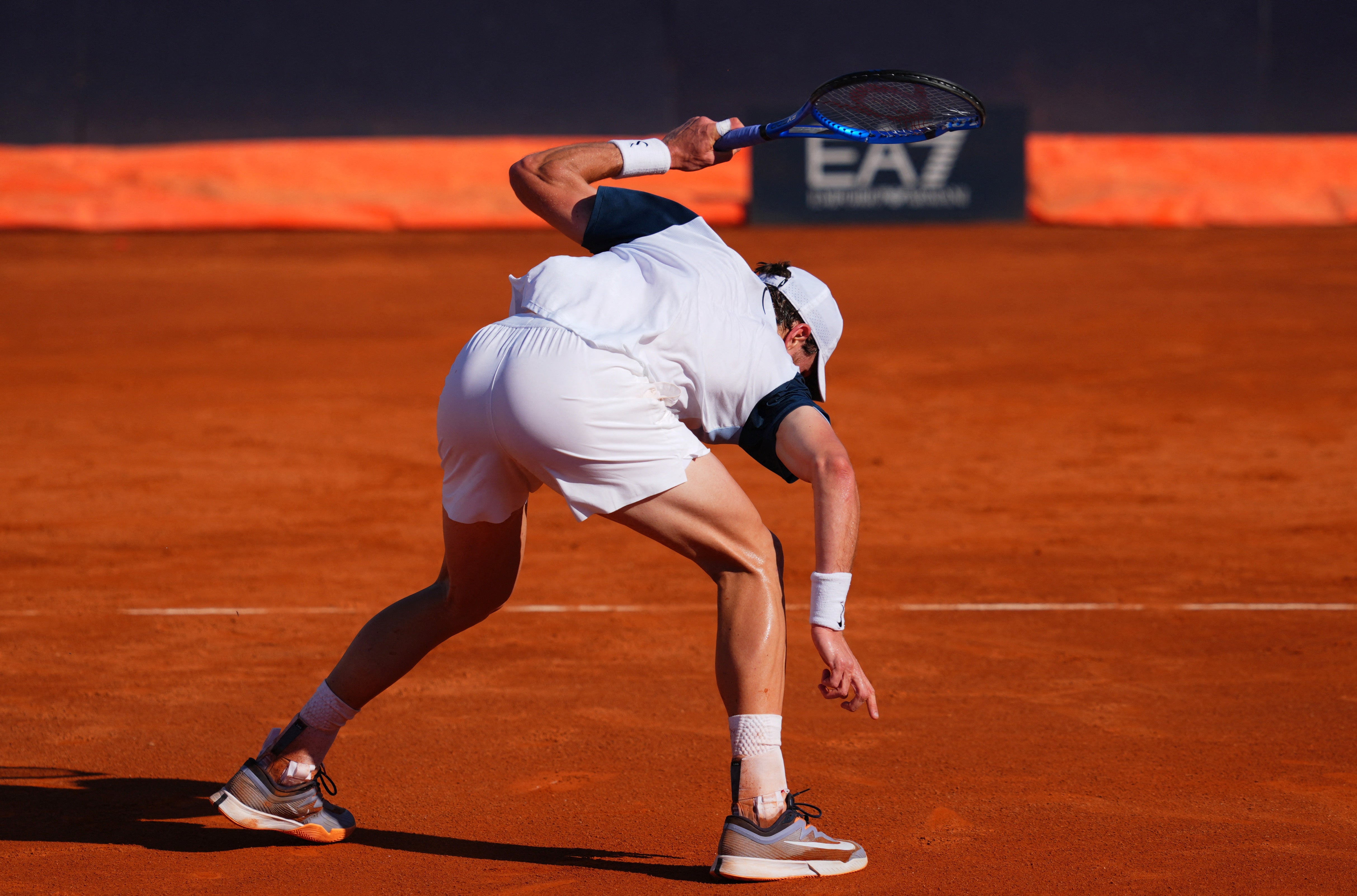ARTICLE AD BOX
One of the key skills all grand slam champions need is the ability to grind out wins despite being below their best. Carlos Alcaraz has demonstrated this in the past, but his next opponent in Rome, Jack Draper, might breathe a sigh of relief that the Spaniard has often looked subpar in recent weeks.
It took the 21-year-old two and a half hours to scrape past the hard-hitting Russian Karen Khachanov, 6-3, 3-6, 7-5, to set up another blockbuster encounter with Draper in the quarter-finals. It’s the last big tournament before Roland-Garros, where Alcaraz will look to defend his title. An encounter with the tour’s most in-form player feels a fitting test of his form.
For Draper, another meeting with Alcaraz is a chance to demonstrate just how far he has come – and how high his ceiling is. The Spaniard leads their head-to-head 3-2, but the British No. 1 has turned the tide in the last year or so.
Where once a meeting with the four-time major champion would have struck fear into the heart of every British observer, now it feels a more even match. Draper prevailed in their most recent meeting in the Indian Wells semi-finals in March and tipped the scales in his favour, going on to win his first Masters 1000 title.
His coming-of-age straight-sets victory over Alcaraz on the grass at Queen’s last year marked the beginning of his meteoric rise to the top. Almost a year on, Draper has cracked the top five and will become world No. 4 should he make the semi-finals, displacing Taylor Fritz, one of the tour’s most consistent players.
Standing in his way is a player whose star has somewhat waned in recent months. Alcaraz at his best is dazzling. But whether it be the pressure of closing the gap to Jannik Sinner, or just the endless grind of the tour, he has been unable to take advantage of the Italian’s three-month absence and seems unable to maintain focus long enough to mount a sustained challenge.
From a break up in both the second and third set against Khachanov, Alcaraz then fell apart, dropping four straight games from 6-3, 3-2 up, and actually won fewer points than the Russian – 95 to his 98. Afterwards he said he was “just tired”, and conceded that he “lost focus a little bit” from that key point in the second set. He revived when it mattered, but that collapse in concentration has become all too familiar. Draper will smell blood.
The pair have never played on clay and it will be a different challenge. But it’s the Londoner who has been the more consistent in recent months, winning his maiden 1000 title in California and reaching another final at that level in Madrid last week, while Alcaraz won the Monte Carlo Masters and an ATP 500 title in Barcelona. Even on what is theoretically his weakest surface, Draper is ironing out the flaws in his game.

His passage through the Rome draw was made unexpectedly difficult by Corentin Moutet, one of the tour’s most unconventional players. Draper admitted he was “bamboozled” at the start of their encounter before toiling to a 1-6, 6-4, 6-3 victory to reach the last eight.
But one of the big things Draper must now become accustomed to is having a target on his back. He let slip a 5-4 lead in the Madrid final against Casper Ruud, dropping serve in a perplexing game having dominated until then. From there he lost the set 7-5 and lost his cool at the same time, chuntering at himself and his box before regrouping and eventually forcing a deciding set.
More of that same anger has dogged him in Rome; he smashed a racquet in his previous match, against the unheralded qualifier Vit Kopriva, despite winning comfortably. Afterwards he told Sky Sports, “I’m human. I get out of bed and I feel so angry some days, and I’ve got to play a tennis match and I’ve got to lose points and I’ve got to go through those emotional ups and downs.
“It’s taking some getting used to for me [to compete week in and week out] from a mental and physical side, and I want to keep going, but it’s sometimes difficult to always be perfect.”

Against Moutet he was more composed, but Draper conceded, “I just completely lost my way. I had a word with myself after the first set, I knew I needed to knuckle down and focus.”
Draper wouldn’t have seen Alcaraz’s own post-match admission of tiredness – the Brit finished a few minutes before his next opponent – but his interview afterwards felt telling. “There’s no doubt I came out a bit all over the place today, but I’m giving myself the best chance to be there every point,” he said. “There’s no time to be tired any more.”
Alcaraz has repeatedly shown that he can dig deep when he needs to, waking from his slumber to reel off the points. Draper is beginning to demonstrate that same grit. To get the better of his Spanish rival, and to cement his place at the apex of men’s tennis, he’ll need it in spades.









 English (US) ·
English (US) ·